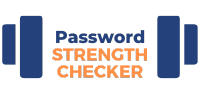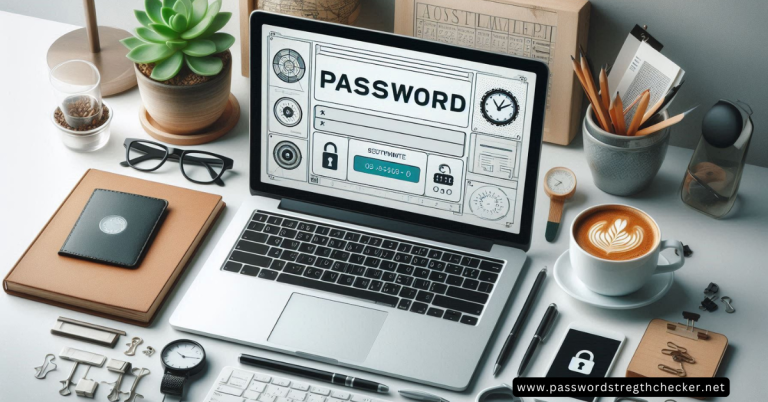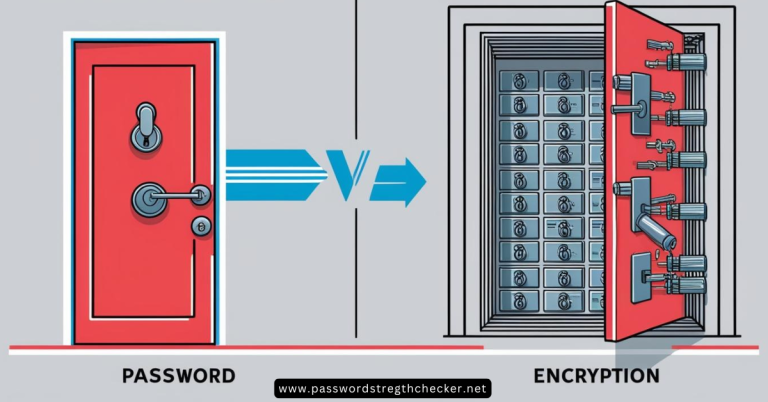Book Appointment Now

Bits of Entropy: What’s the Magic Number?
Listen, I’ve been teaching cybersecurity for over 15 years, and if there’s one thing that makes my students’ eyes glaze over faster than a frozen pond in winter, it’s when I mention “bits of entropy.” But stick with me here – I promise to make this not just digestible, but actually interesting!
Did you know that a password with just 40 bits of entropy would take a supercomputer less than a day to crack, while one with 75 bits could take centuries? That’s wild, right? I remember the day this really clicked for one of my students. She said, “Mrs. Johnson, you mean my birthday password could be cracked before I finish my morning coffee?” Yep, that’s exactly what I mean!
What is Password Entropy?
Think of password entropy like measuring the chaos in your teenager’s room – the more chaos (or randomness), the harder it is to figure out where anything is! When we talk about password entropy, we’re really talking about how unpredictable your password is to someone trying to guess it.
Remember back in math class when you learned about probability? It’s kind of like that, but way cooler because it’s about keeping your digital life safe! Shannon’s information theory (don’t worry, I won’t get too nerdy here) gives us a way to measure this unpredictability in “bits.”
The Magic Numbers: Key Entropy Thresholds
Okay, here’s where things get really interesting! Let me break down these “magic numbers” in a way that’ll actually make sense.
First off, let’s talk about that magic minimum number: 75 bits of entropy. Why 75? Well, I like to tell my students it’s like having a really good bouncer at a club – it keeps most of the troublemakers out! With 75 bits, you’re looking at a password that would take modern computers years to crack.
Here’s a quick breakdown of what different entropy levels mean for password cracking times (and trust me, this stuff fascinates my students):
- 40 bits: Crackable in less than a day (about as secure as leaving your front door wide open!)
- 60 bits: Could take a few months (better, but still not great)
- 75 bits: Now we’re talking! Years of cracking time
- 80 bits: Centuries (your great-great-grandkids would be old before this gets cracked)
- 128 bits: Basically forever (even with quantum computers, this is Fort Knox-level security)
You know what’s funny? I used to have a password that I thought was super secure – my cat’s name plus my birthday plus some special characters. Turns out, it only had about 30 bits of entropy! 🤦♀️ Talk about a wake-up call!

Real-World Impact
Here’s something that’ll blow your mind: adding just one bit of entropy doubles the time it takes to crack your password. That’s right – doubles it! So going from 75 bits to 76 bits isn’t just a tiny improvement, it’s literally twice as secure. Pretty cool, huh?
I remember explaining this to a class once using cookies. “If I have 75 cookies and double them, that’s 150 cookies. But if I double them again? 300 cookies!” Their eyes lit up at that example (though maybe they were just thinking about cookies).
One of my favorite things about teaching this stuff is seeing the lightbulb moment when students realize that a simple, random passphrase like “correct horse battery staple” (hey XKCD fans!) often has more entropy than a complicated mess like “P@ssw0rd123!”.
Remember folks – in the world of password security, randomness is your best friend. Just like my cat who randomly decides when to acknowledge my existence, the more random your password, the better!
Calculating Entropy in Different Password Types
You know what’s really wild? Not all passwords are created equal – even if they’re the same length! Let me tell you about the time I challenged my class to create “super secure” passwords. Almost everyone came back with something like “P@ssw0rd123!” thinking they’d nailed it. Oh boy, did we have a good laugh about that one!
Let’s break down how different types of passwords stack up:
Random Passwords vs. Passphrases
Remember that “correct horse battery staple” example I mentioned? Here’s why it works so well. Each random word adds about 11-12 bits of entropy (assuming you’re picking from a list of about 2,000 common words). So four random words give you around 44-48 bits of entropy. Not bad for something you can actually remember!

Character Sets Matter (But Not How You Think!)
Here’s something that surprises my students every time: adding that @ symbol to replace an ‘a’ in your password? Yeah, that’s not as clever as we all thought. Hackers have known about these substitutions since basically forever! Here’s what really matters:
- Uppercase letters: 26 possible characters
- Lowercase letters: 26 more characters
- Numbers: 10 more characters
- Special characters: About 33 commonly used ones
When you use truly random characters from these sets, that’s when the magic happens!
Tools and Techniques for Measuring Entropy
Look, I’m not expecting you to do complex math in your head (I can barely calculate my coffee shop tip without my phone). There are some fantastic tools out there that can help:
Password Strength Meters
But wait! Before you trust that little colored bar on websites, let me share a secret – most of them are about as reliable as my weather app. They often just check for things like “contains a number” or “has a special character” without actually calculating true entropy.
Check Your Password Strength Using Our Free Password Strength Meter
Password Managers: Your New Best Friend
I’ll admit it – I was skeptical about password managers at first. “You want me to put ALL my passwords in one place?” But let me tell you, they’re like having a personal security expert who’s really good at math. Most good password managers will:
- Generate truly random passwords
- Calculate actual entropy values
- Store everything securely
- Make your life WAY easier
Future-Proofing Password Entropy
Alright, let’s put on our fancy future-glasses and look ahead! (I actually have a pair of novelty “2024” glasses I wear when teaching this section – the students either love it or cringe. Usually both!)
The Quantum Computing Challenge
Remember when I said an 75-bit entropy password would take centuries to crack? Well… quantum computers might change that equation dramatically. But don’t panic! Here’s what you need to know:
- Current quantum computers aren’t ready to crack passwords yet
- We’re preparing new standards that are “quantum-resistant”
- The basic principles of entropy still apply – more is better!
Practical Tips for 2025 and Beyond
Let me wrap this up with some real-world advice (and I tell my kids this all the time):
- Aim for at least 75 bits of entropy in your important passwords
- Use a password manager (seriously, just do it)
- Different accounts need different levels of security (your Netflix password probably doesn’t need 128 bits of entropy)
- When in doubt, go with a longer passphrase rather than a complex shorter password
The Bottom Line
Here’s what I want you to take away from all this (and what I tell my students on the last day of class): Understanding bits of entropy isn’t about becoming a math whiz or a security expert. It’s about making smart choices to protect your digital life.
Remember that student I mentioned at the beginning? She now helps teach cybersecurity to elementary school kids, explaining entropy using a fantastic analogy about mixing paint colors. It just goes to show that once you understand these concepts, they’re not scary at all – they’re empowering!
Stay safe out there, friends! And remember, when it comes to password entropy, chaos is your friend. Just like my teenager’s room, sometimes a little randomness is exactly what you need! 😉



